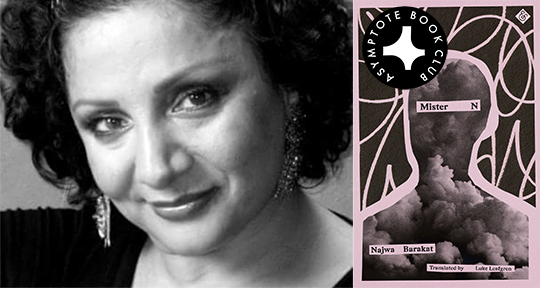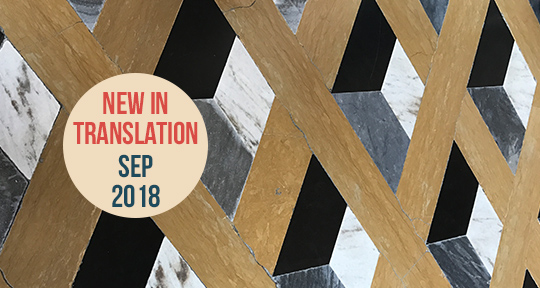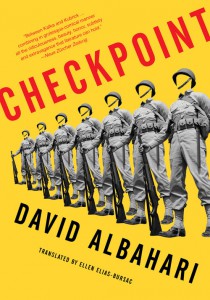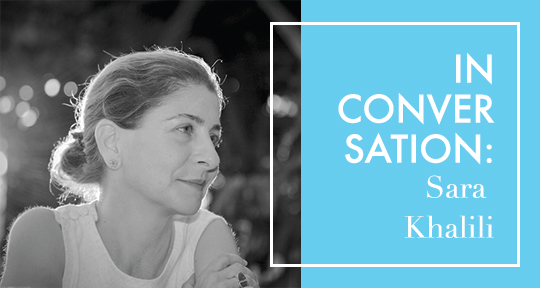Dissipating the border between fiction and reality, Najwa Barakat’s Mister N is as much a traversal through the cartography of Beirut as it is one wandering the avenues of the mind. We are proud to present this the Lebanese author’s most recent release as our Book Club selection for the month of May, a singular and genre-defying look into where histories, memories, narratives, and psychologies coincide.
The Asymptote Book Club aspires to bring the best in translated fiction every month to readers around the world. You can sign up to receive next month’s selection on our website for as little as USD15 per book; once you’re a member, join our Facebook group for exclusive book club discussions and receive invitations to our members-only Zoom interviews with the author or the translator of each title.
Mister N by Najwa Barakat, translated from the Arabic by Luke Leafgren, And Other Stories, 2022
Najwa Barakat’s Mister N, translated by Luke Leafgren, is a poetic and intricate labyrinth of a book that subtly explores trauma, mental illness, language, and the art of writing. Traveling through the streets and modern history of Beirut, Barakat’s psychological metafiction still manages to maintain a tone both light and entertaining, enthralling the reader in its twists and turns and propelling them through its pages.
As the novel opens, our protagonist, the titular Mr. N, is writing a story about Lazarus, who has just been awoken from death. As the book progresses, however, we discover that the main narrative being written by Mr. N actually concerns his attempts to resurrect his authorial self by unpicking and then piecing together fragments of his memories, following a period of writer’s block that has lasted fifteen years. The novel regularly shifts in time, mood, and even self-referentially in its narrative point of view, but it quickly becomes clear that everything we are shown is through Mr. N’s very subjective lens. As his behaviour becomes more erratic, the reader must decide how much what he writes can be trusted and whether they should suspend their disbelief to the point where it would be possible for a character from one of his novels to appear in flesh and blood.
Much of the power and pleasure in Mister N is in its meditations on language and the act of writing, as well as the poetry within its pages. The novel is full of rich metaphor and simile, and Najwa Barakat’s study of cinema is evident in the detailed and evocative scenes she paints: the garden beneath his hotel window with its “three beautiful sisters clothed in green leaves”, which later, in the cover of pitch black night, becomes the stage for a macabre performance by his neighbours; the dirty and overcrowded streets of the refugee and migrant-filled districts where Mr. N “navigated high, dilapidated buildings, haphazardly placed, pushing against one another, tottering together, like man-made cumulus clouds locked in combat as they floated along with scents of decay from the slaughterhouses and the mountains of trash”. The potent combination of Mr. N’s poetic imagination and his illness allows the narration to glide seamlessly from the serious to the slight in the span of a sentence and then back again, reflecting a state of trauma in which the relative significance of things can be inverted, and a numbness to death and loss that can put the trivial on equal footing with the terrible. Midway through witnessing his neighbour’s suicide, for example, he becomes distracted by a mosquito and begins meditating on the best ways to get rid of it. On the one hand, such shifts and tangents contribute to the novel’s grim humour; on the other, as the novel progresses, and Mr. N grows less confident in his fiction of a comfortable hotel life and increasingly paranoid and delusional, they also reflect his inability to piece together a coherent narrative that might reveal the supposed truth of his life’s history. As he explains to one of his psychologists, “the malady lies in my fatal recalling of every detail and my brain’s refusal to take in the full picture. So here I am, not grasping realities except through successive glimpses of the horizon, momentary flashes that reveal disparate, disjointed things, before putting them back together again.”






